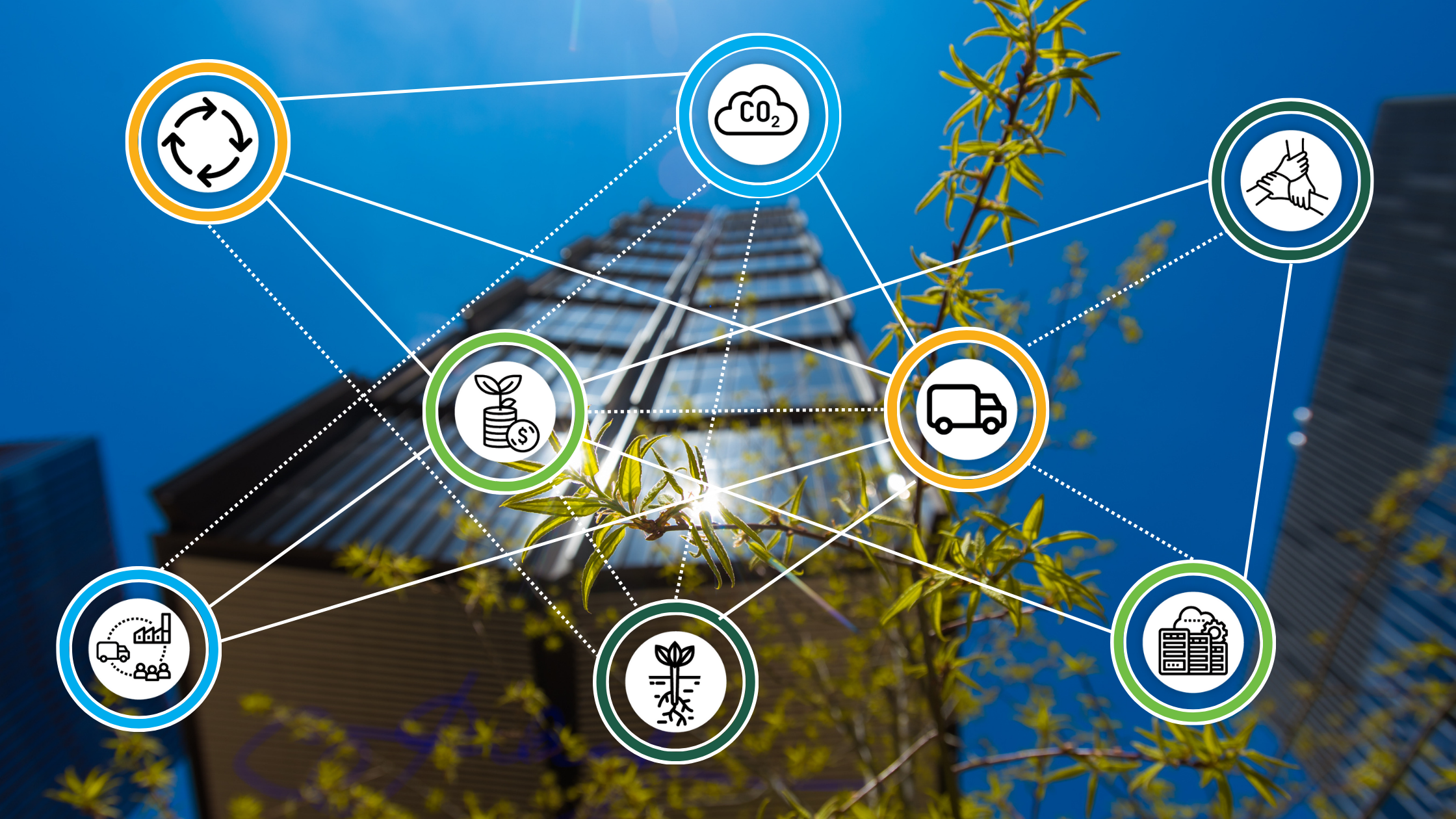2024 Seed Award Recipients Span Cross-Industry Innovations
October 21, 2024

The 2024 Seed Awards span the MCSC's eight impact pathways.
The MIT Climate and Sustainability Consortium (MCSC) will provide over $1 million to fund nine one-year projects, led by principal investigators across MIT’s schools and the Schwarzman College of Computing, through the 2024 Seed Awards program. Winning projects represent emerging solutions with promise for rapid scalability in addressing climate and sustainability issues across a variety of sectors, from agriculture and architecture to employing AI in mechanical recycling systems.
The program offers further opportunity to build networks among awarded projects, deepening the impact of each and ensuring the total is greater than the sum of its parts. For example, to drive progress in projects focusing on Circularity and Materials, the MCSC can facilitate connections between technologists at MIT who are developing recovery approaches for metals, plastics, and fiber; social scientists who are uncovering barriers to reuse; and engineers who are looking for efficiency opportunities in reverse supply chains.
The impact of awarded projects is further extended by utilizing data and industry expertise provided by the consortium’s 14 member companies. Company representatives form the Industry Advisory Board, which collaborates with the MIT community through member meetings, workshops, and the MCSC’s annual symposium.
“Fostering collaboration between stakeholders is central to the MCSC’s mission,” says Anantha P. Chandrakasan, dean of the MIT School of Engineering, MIT’s Chief Innovation and Strategy Officer, Vannevar Bush Professor of Electrical Engineering and Computer Science, and Chair of the MCSC. “By bringing together the deep insights of our industry partners, we move ever closer to meeting joint sustainability goals.”
An inaugural awards cycle in 2022 awarded a total of $5 million over two years to 20 projects led by researchers across all five of MIT’s schools.
“It’s invigorating to see the implications of projects the consortium has been able to support,” says Jeremy Gregory, MCSC Executive Director. “We are hopeful that these projects will continue to lead to new connections that amplify the outcomes of our researchers’ work.”
The nine winning projects align with the MCSC’s Impact Pathways, derived in collaboration with MCSC member companies. Selection criteria include importance to members’ goals, MIT researcher vision and expertise, and relevance to the consortium’s mission of implementing real-world solutions to pressing climate and sustainability challenges by leveraging industry expertise with MIT’s world-class resources.
- “Optimization and collaboration toward a scalable charging infrastructure in logistics,” co-led by Saurabh Amin, professor of civil and environmental engineering and principal investigator at the MIT Laboratory of Information and Decision Systems (LIDS); and Alexandre Jacquillat, associate professor of operations research and statistics at the MIT Sloan School of Management
- “Global mapping of groundwater recharge and sustainable aquifer water withdrawals using satellite observations,” led by Dara Entekhabi, Bacardi and Stockholm Water Foundations Chair; professor in the departments of Civil and Environmental Engineering and Earth, Atmospheric and Planetary Science
- “Reducing embodied carbon @ work: Low-carbon cement-based product strategies for data centers, warehouses, and industry,” led by Randolph Kirchain, Director, MIT Concrete Sustainability Hub and principal research scientist at the MIT Materials Research Laboratory
- “Optimizing biological nitrification inhibitors for the suppression of N₂O emissions from agricultural soils,” led by Darcy McRose, assistant professor in the department of Civil and Environmental Engineering
- “Employing AI to sort plastic waste by manufacturer,” led by Bradley D. Olsen, Alexander and I. Michael Kasser (1960) Professor of chemical engineering
- “The impact of weather on the retail industry: long and short-term impacts,” led by Georgia Perakis, interim dean and professor of operations research, statistics and operations management at MIT Sloan School of Management; and Talia Tamarin-Brodsky, assistant professor in the department of Earth, Atmospheric, and Planetary Sciences.
- “Improving additionality assessment in voluntary carbon markets,” led by Roberto Rigobon, professor of applied economics at MIT Sloan School of Management
- “Hyperspectral remote sensing of soil organic carbon using machine learning,” led by Sherrie Wang, d’Arbeloff Career Development Assistant Professor in the department of Mechanical Engineering; Institute for Data, Systems, & Society (IDSS); and Laboratory for Information & Decision Systems (LIDS); and principal investigator of the Earth Intelligence Lab.
- “Gaining green premiums from decarbonizing the built environment: A holistic evaluation approach for low-carbon investments,” led by Siqi Zheng, faculty director of the MIT Center for Real Estate and the Sustainable Urbanization Lab; Roberto Rigobon, professor of applied economics at MIT Sloan School of Management.
Read more about the winning projects and the research teams here.
